10 Highest-Quality Matchas on Grocery Shelves
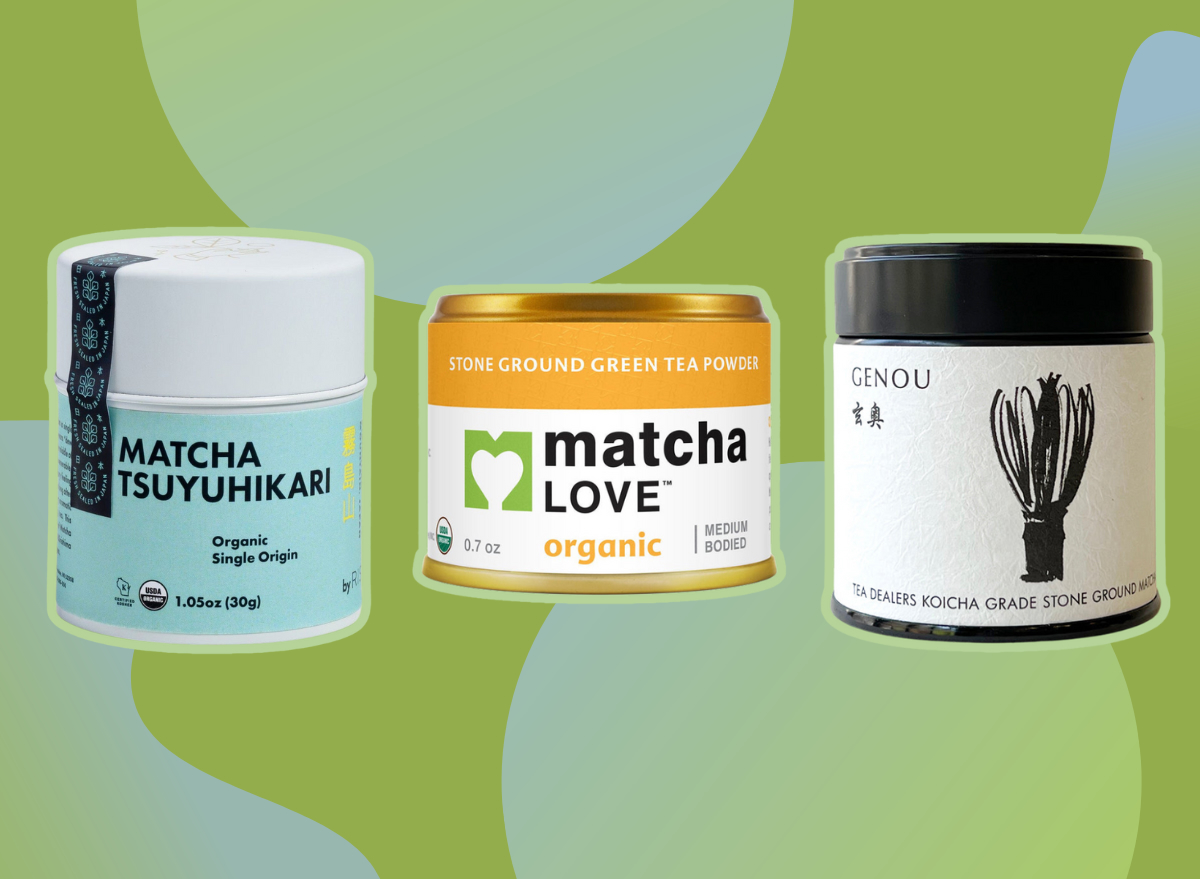
Matcha has become a staple on coffee shop menus. This Japanese tea powder has skyrocketed in popularity in the U.S., showing up in everything from milky lattes to green tea-flavored baked goods. As more consumers have developed a taste for matcha, finding high-quality matcha to blend and brew your favorite drinks at home has become easier. However, the range of options in grocery stores and specialty shops can feel overwhelming.
We spoke with matcha experts to get the inside scoop on exactly what to look for when buying matcha to ensure you're investing in a high-quality tea with excellent flavor.
What is matcha?
"Matcha is a Japanese green tea powder enjoyed for centuries in Japan," explains Namiko Hirasawa Chen, creator of Just One Cookbook.
Matcha is made from green tea leaves that are shaded or covered in the last several weeks before harvest. Growers harvest only the youngest, greenest leaves and remove all stems before quickly steaming them, preventing them from oxidizing and preserving their bright green color. The steamed leaves are then dried and ground into a fine powder. Unlike other teas, including traditional green and black teas, the leaves are never roasted or fermented. This helps the tea retain more nutrition and its light, grassy flavor.
Matcha "contains some of the highest concentrations of catechins, which are the compounds that give tea its health benefits," according to Bryan Quoc Le, a food scientist and author of 150 Food Science Questions Answered.
What does matcha taste like?
Matcha can be an acquired taste for some. The more matcha you sample, the more you'll realize how varied and complex the flavors can be. According to Chen, most matcha have "a vegetal flavor with an umami aftertaste." Some can taste slightly bitter, but higher-quality teas are smoother and sweeter. "Matcha can range in bitterness, umami, and smoothness depending on the quality and freshness," Chen says.
What makes matcha high-quality?
When shopping for the highest-quality matcha brands, there are a few things to consider.
- Sourcing: For starters, always look for matcha sourced from Japan. Matcha originated in Uji, a city in Kyoto, which is also the birthplace of the Japanese tea ceremony. Chen also recommends tea from Kagoshima, Fukuoka, and Shizuoka prefectures. "These regions have favorable soil and growing conditions to produce the best product. It's similar to the importance of the terroir of grapes grown for wine," she explains.
- Color: Color is a good visual indication that your matcha is high quality and has been preserved well. Le says to look for dark green matcha, "which [is] likely higher in catechins—a signal of quality and excellent harvest." Better matcha will have a super-fine, silky texture that's not coarse or gritty. Clumps are natural, though, so don't let that deter you.
- Ingredients: Avoid any matcha laden with fillers, sugar, or preservatives. Your tin should contain a single ingredient: matcha powder.
- Labeling: Some matcha is labeled "ceremonial." There's no specific regulation or definition for ceremonial-grade matcha, but Le says that the term is a good indication that the tea is made of younger, fresher tea leaves with the best flavor for drinking. Matcha not labeled ceremonial is considered culinary grade. Though still full of health benefits, it's better for cooking or baking.
Chen adds that "matcha oxidizes quickly and loses its beautiful flavor and color." She recommends buying small quantities (20 to 40 grams at a time) to keep your tea fresh. "Once you open it, use it within two to three weeks, and check the expiration date on the package before purchasing."
Read on to learn about the best matcha brands, and for more, don't miss The 11 Highest-Quality Green Teas On Grocery Shelves.
matcha LOVE Organic Ceremonial Powder
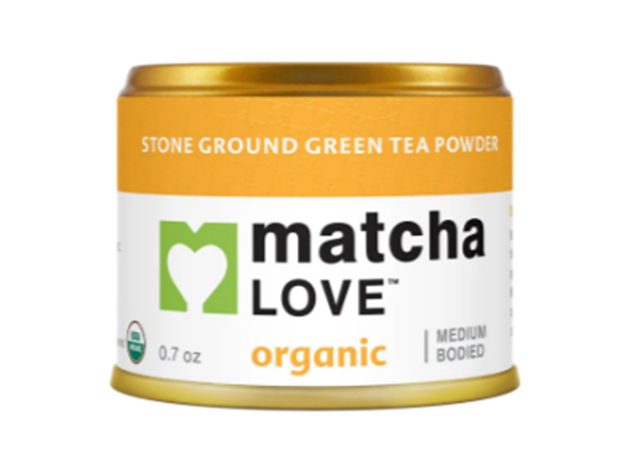
This ceremonial-grade powder is Le's favorite. "Ito En is an internationally renowned tea company and has made a remarkable mark in the tea industry for producing authentic brewed ready-to-drink—RTD—teas. They offer great teas for affordable prices," he says.
Ippodo Tea Sayaka Matcha
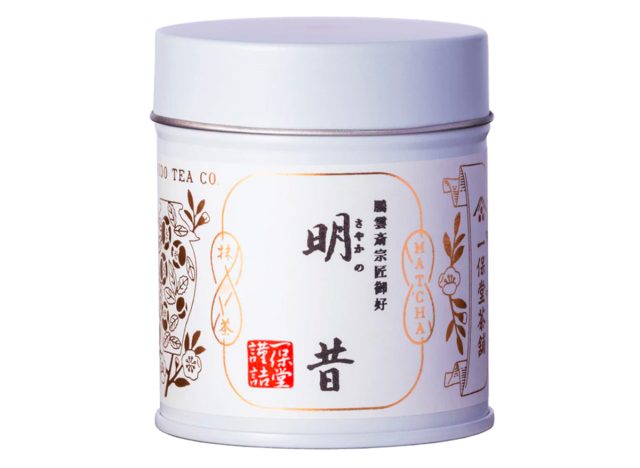
Ippodo is a well-regarded tea company based in Kyoto, and it's Chen's first choice for making matcha at home. "I have loved their teas since I grew up and lived in Japan," she says. Ippodo's Sayaka is a light and smooth-tasting matcha that the brand recommends for newbies who are acquiring their taste for the tea.
Kettl Hanaka Matcha
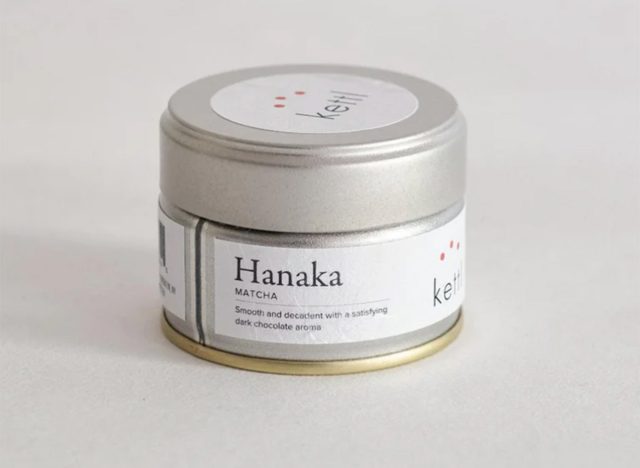
This bolder-tasting matcha from Kettl has chocolatey undernotes and a strong aroma. The tea is shade-grown for 20 days, which helps preserve its antioxidants. It comes from Japan's Yame prefecture. The creamy notes make it a great choice for homemade matcha lattes.
David's Tea Grand Cru Matcha
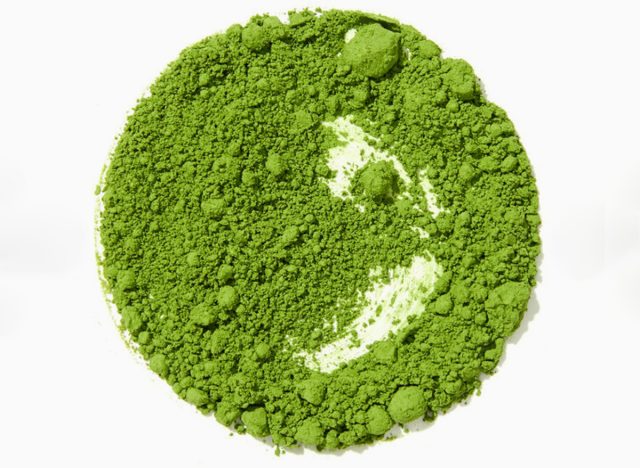
This delicate powder is made from tea grown in Kyusyu, Japan, and has a slight sweetness without additives or sugar. The tea is certified organic and crafted using a careful process to remove stems, veins, and spines from each leaf before it's ground into a super-fine powder that blends into a creamy brew.
Mizuba Tea Co. Yorokobi Ceremonial Organic Matcha Green Tea
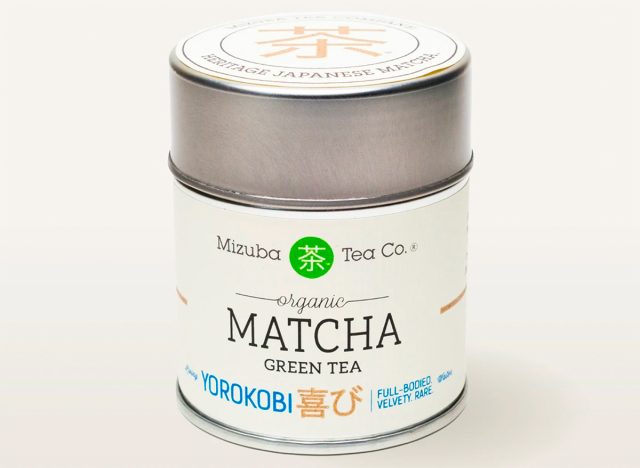
This matcha is sure to be a hit among umami lovers. Mizuba Tea Co has been producing this strain since 2017, and it's prized for its smooth and easily drinkable finish that's low on bitter tannins. This tea has a lovely, mellow vegetal flavor that first-time matcha drinkers will also appreciate.
Ocha & Co. Japanese Matcha
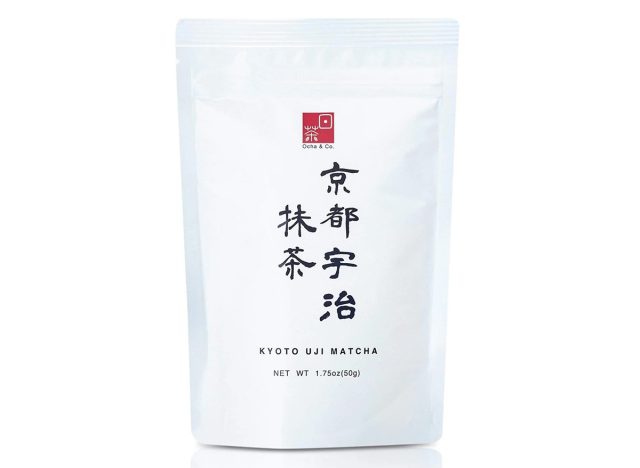
This bright green powder hails from Uji, Japan, the birthplace of matcha. It's prepared using traditional stone milling into an incredibly fine powder that froths into a smooth and lightly sweet tea. Ocha & Co. produces teas in small batches and stores them in resealable pouches that preserve freshness.
Zuma Organic Japanese Matcha Tea Powder
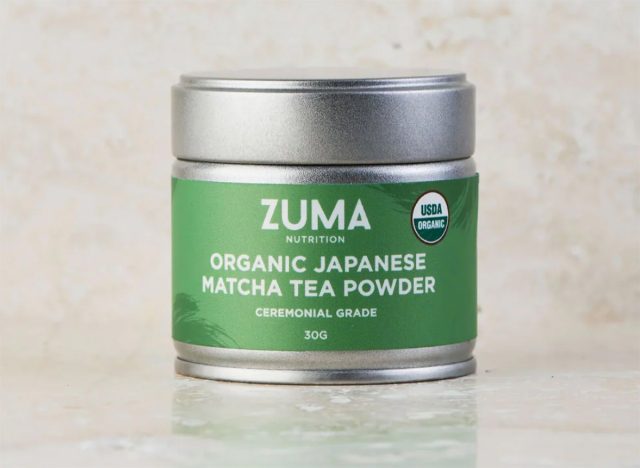
This 100% USDA Certified Organic matcha from Zuma Nutrition is sourced from Japanese producers and third-party lab tested for purity and quality. In accordance with traditional farming and production standards, the tea leaves used to produce this matcha are shaded for several weeks before harvest to maximize their nutritional content and bold green color.
Midori Spring Organic Ceremonial Matcha Emerald
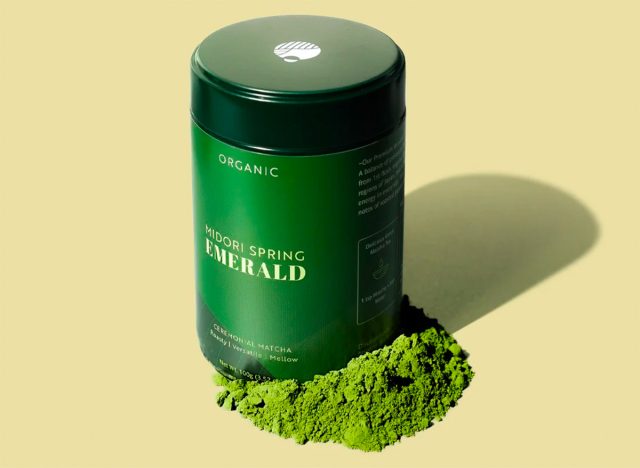
This easy-to-blend tea is made from leaves harvested in two Japanese prefectures: Aichi and Kagoshima. The leaves are ground by stone using the traditional technique, and the matcha is sold in larger quantities (up to 1 kilogram) than many other options, making it an excellent choice for serious matcha lovers. Per Chen's advice, be sure to use your matcha within three weeks.
Rishi Matcha Tsuyuhikari
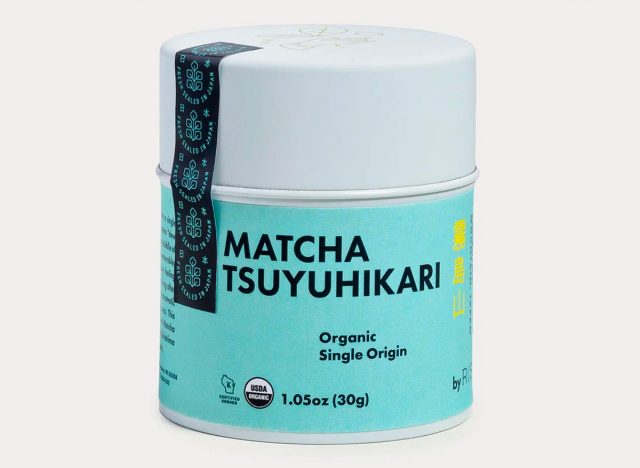
Rishi makes several unique matcha varietals, each with a complex flavor profile. The tsuyuhikari tea comes from a single tea cultivar grown on an active volcano on the island of Kagoshima in southern Japan. Thanks to their southern origin, the teas are harvested earlier than most and have a pleasant bitterness and deep umami flavor.
Tea Dealers Genou Matcha
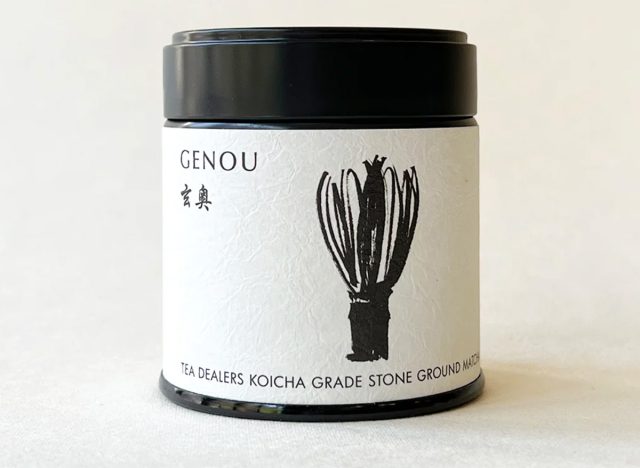
This nicely balanced green tea tastes nutty with cocoa notes and a bright touch of green apple flavor in the background. It's made from a blend of three tea cultivars grown in Uji, Japan: Gokoh, Asahi, and Samidori. The 30-gram container is resealable to preserve freshness and flavor.









